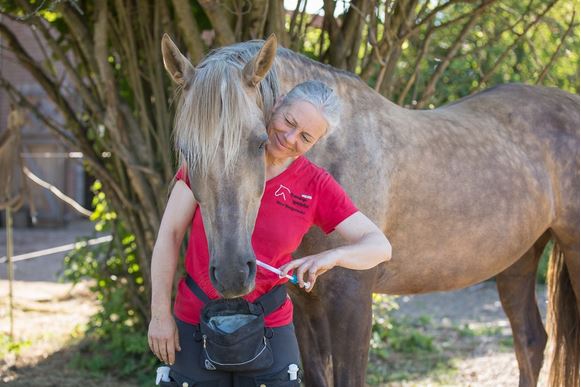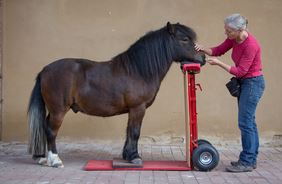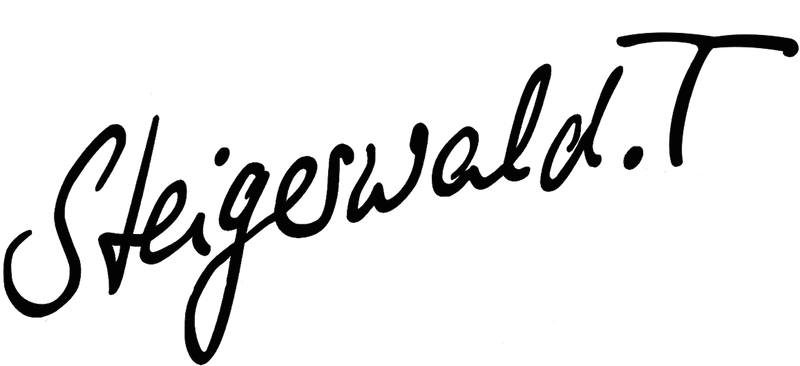
Today I would like to explain the topic of cooperation with horses in medical training and give you an insight into this form of training.
What does cooperation mean in dealing & training with horses?
“Uncertainty and helplessness versus self-determination”.
In many situations in everyday life with our horses we depend on the cooperation, trust and participation of our horses. In the life of a horse there are some scary or frightening moments and unknown situations. A very special unpleasant and difficult situation for many horses is the treatment at the vet.
It is tied up, possibly in pain. You, as his confidant, are agitated. In addition, there is the veterinarian, whose presence has often been associated with less than pleasant experiences for your horse in the past.
Your horse finds himself in a situation where he knows that he is in for acutely unpleasant measures and possibly also pain. The tension level rises and with it the stress hormones. Your horse’s instinctive behavior would be to flee or fight back. However, the more tense the muscles, the more intensely it will feel pain. Your horse is stuck in a vicious circle and the horse’s brain stores the situation under the heading “acutely bad”. Consequently, in the future, when it thinks it perceives indications of a comparable situation, it will react with defensiveness from the outset.
An animal-friendly way out of this vicious circle is to give your horse a say and control over the course of a treatment. In this way, he can actively give you his “okay”, knowing full well that it may become uncomfortable in a moment.
Your horse gets a say & self-determination and is willing to cooperate with you and the veterinarian. In other words, it cooperates and actively collaborates.
What goals do you achieve with this?
When we have worked out this willingness to cooperate in the horse, many fear and fright moments for your horse can be avoided. He does not store the visit & treatment of the veterinarian negatively and a possibly before always necessary sedation or nose brake is no longer necessary.
The bottom line is that everyone involved wins: your horse regains its self-determination, you gain more security and a smooth process, the vet gains an enormous reduction in workload and everyone together gains much more confidence in dealing with each other.
In addition, medical training does wonders for the relationship between you and your horse. Please have a look at this blog Medical Training works wonders in the relationship.
How you can develop this willingness to cooperate in your horse?
For exactly this development of cooperation and self-determination there is the so-called “Medical Training”. I have developed a whole training concept for horse owners, trainers, veterinarians and other professionals in the equine field.
This training is especially focused on health care and veterinary situations. You will learn methods to practice certain scary and frightening situations like the injection, a worming treatment, etc. and take away your horse’s fear of them.
In my Steigerwald.T -Online Academy, you will find a variety of educational content in the form of webinars under the section Medical Training.
With which you can build and develop this cooperation!
In medical training we work with cooperation signals.
A cooperation signal is a behavior established through reward learning that gives you information about your horse’s willingness to endure and even actively cooperate with subsequent manipulations.
The main use for cooperation signals is in the area of grooming or medical procedures. They enable your horse to control the course of such measures.
Thanks to the self-efficacy thus achieved and the positive link established through the training path, your horse can learn to endure the often uncomfortable, unpleasant or even painful procedures in the treatment in a calm and relaxed manner.
Examples of cooperation signals include assuming a certain posture or performing body targets with or without aids.
The most commonly chosen cooperation signals include:
- the basic position
- a hoof target (ground target)
- lower jaw target on a cooperator (see photo)
- stationary nose target

There are many other cooperation signals, supporting tools and exercises in medical training.
If you want to learn more about Medical Training and get a taste of it, I have something for you in my store. The free webinar “Introduction Medical Training”.
In this webinar with me and veterinarian Samantha Krost-Reuhl, you will learn about the basics of medical training as well as the contents of the Steigerwald.T Medical Trainer training. In addition to the theoretical background, you will get an overview of the various possibilities of application on the horse as well as first ideas for your training at home.
In order to deepen and concretize these first ideas for the training as well as for your concrete questions, there will be the live webinar Cooperation in (Medical) Training | Live Webinar on 12.07.2022 at 19:30. Here you can register directly.
